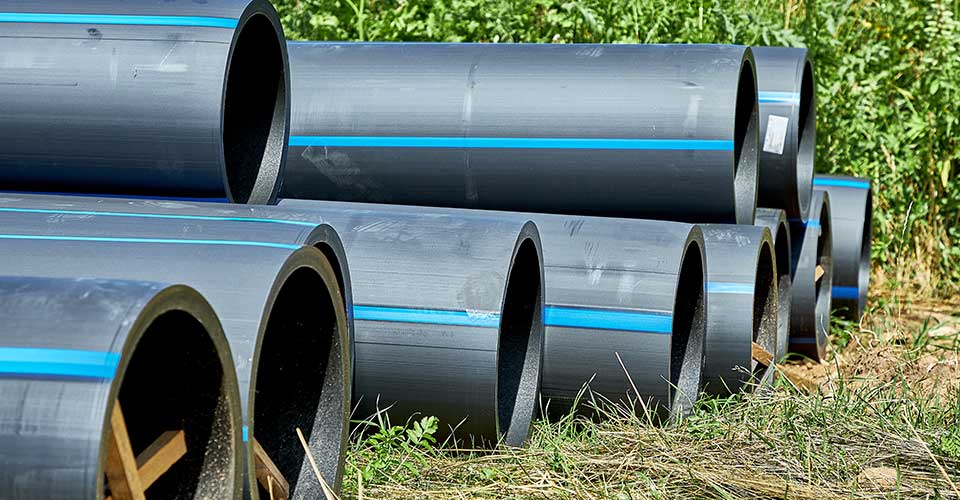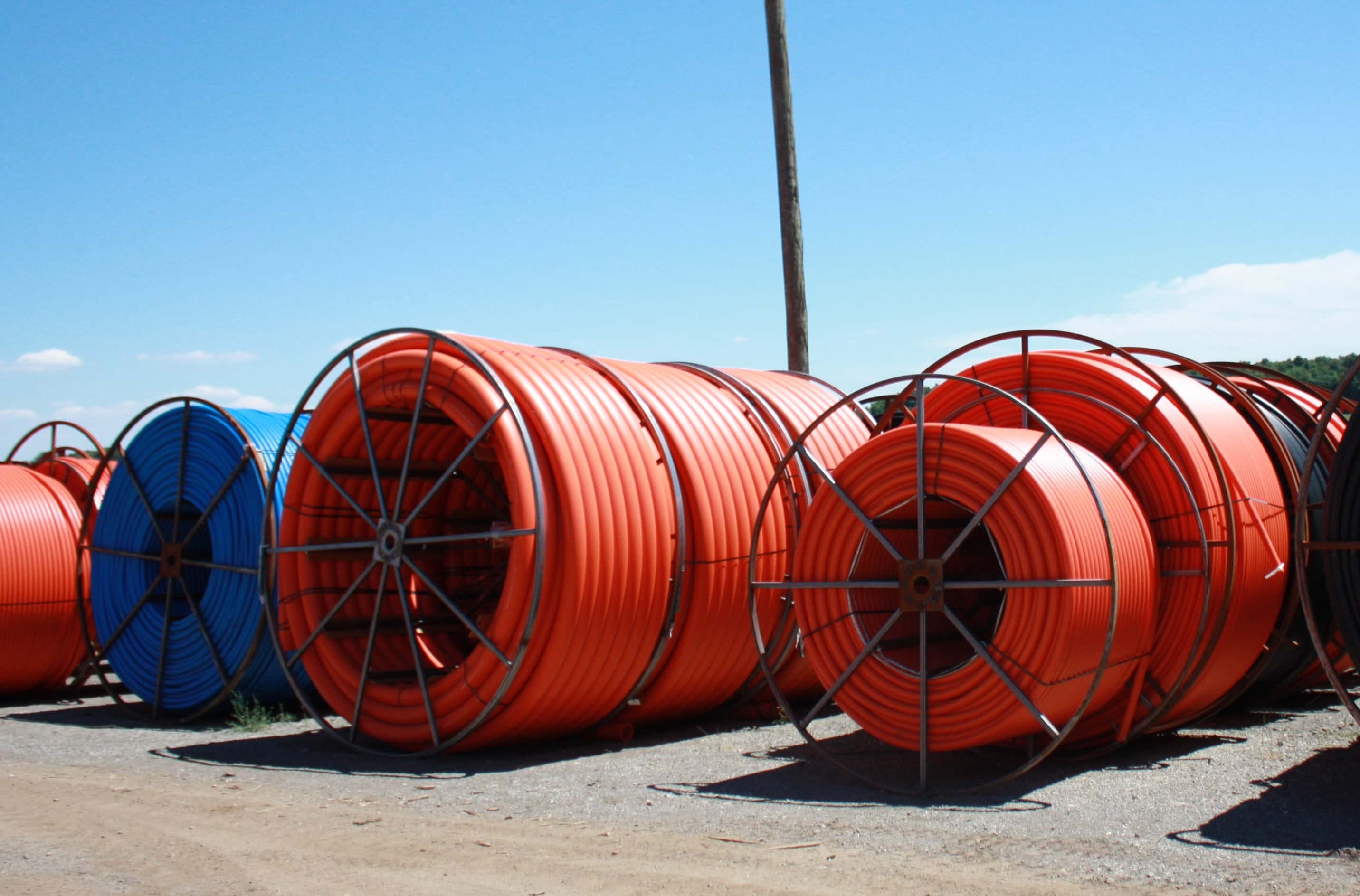Where to Find hdpe pipe in stock Midland TX for Fast Turnaround
Comprehending the Trick Benefits of HDPE Pipe for Water and Wastewater Management
The usage of HDPE pipeline in water and wastewater monitoring offers countless advantages that merit consideration. Its exceptional longevity and lengthy life-span make it a recommended selection for many projects. In addition, the material's resistance to deterioration and chemical damages boosts its dependability in different settings. Nevertheless, the advantages expand past simply durability and resistance. Exploring its cost-effectiveness and environmental influence exposes also more engaging factors for its extensive adoption in modern facilities
Outstanding Durability and Durability

HDPE pipeline stands apart for its extraordinary longevity and durability, making it a favored choice in water administration systems. Created from high-density polyethylene, these pipes can hold up against substantial stress and stress and anxiety, guaranteeing reputable performance in time. Their durable nature enables them to endure severe environmental problems, including temperature level fluctuations and soil motions, which can create other products to fall short.
The lifespan of HDPE pipelines frequently exceeds 50 years, offering a cost-efficient service for municipalities and industries alike. In addition, the material's lightweight residential or commercial properties streamline setup, reducing labor expenses and timeframes. This durability lessens the demand for constant repair services or replacements, better enhancing its economic appeal.
In water management applications, the dependability of HDPE pipelines implies fewer disruptions and enhanced service connection, making them important to lasting infrastructure advancement. The combination of toughness and durability strengthens HDPE's role as a keystone in reliable water monitoring remedies.

Resistance to Corrosion and Chemical Damages
While lots of materials catch deterioration and chemical damage over time, HDPE pipes display remarkable resistance, making them excellent for various water administration applications. This durability stems from the molecular framework of high-density polyethylene, which is inherently non-reactive and does not wear away like steels or degrade from exposure to extreme chemicals. Because of this, HDPE is very effective in settings with hostile substances, such as wastewater systems that might include acids, bases, and natural solvents.
Additionally, HDPE pipelines can stand up to environmental elements such as dirt acidity and saline conditions, additionally improving their viability for diverse applications (Pipe Supplier American Plastics Midland). Their capacity to maintain structural honesty gradually minimizes the threat of leakages and failures, which is important in ensuring the safety and security and reliability of water distribution and wastewater administration systems. As a result, the resistance to rust and chemical damages noticeably contributes to the total effectiveness and longevity of HDPE piping services
Cost-Effectiveness and Economic Advantages
When thinking about the monetary implications of water management systems, the cost-effectiveness of HDPE pipelines becomes obvious. These pipes supply lower installation and maintenance prices contrasted to standard products like steel or concrete. Their light-weight nature simplifies transport and installation, resulting in minimized labor expenditures. In addition, HDPE pipes show a lengthy life expectancy, frequently going beyond 50 years, which translates to fewer substitutes and lasting cost savings.
The resistance of HDPE to corrosion and chemical damages minimizes the requirement for pricey fixings and substitutes. The pipes also sustain efficient water flow, decreasing energy prices connected with pumping systems. By alleviating leaks and water loss, HDPE pipes contribute to significant economic benefits for municipalities and industries alike. On the whole, the initial financial investment in HDPE piping can produce substantial monetary returns over the lifespan of the water monitoring system, making it a prudent selection for lasting framework development.
Environmental Sustainability and Minimized Influence

Convenience and Adaptability in Setup
Due to their distinct homes, HDPE pipelines supply impressive versatility and adaptability in setup, making them appropriate for a vast array of applications. Their lightweight nature permits simpler handling and transport, decreasing labor expenses and installment time. HDPE pipes can be curved and shaped to fit various terrains and job requirements, which is specifically beneficial in challenging atmospheres.
Furthermore, their resistance to deterioration and chemical damage allows for setup in diverse setups without the demand for specialized protective coverings. The capacity to fuse joints creates a continuous, leak-free system, enhancing the total integrity and dependability of the setup. HDPE's adaptability likewise suits ground movement, lowering the risk of damage in areas vulnerable to moving dirt. Overall, these characteristics make HDPE pipelines not just versatile but also a favored selection for water and wastewater monitoring systems.
Often Asked Questions
Exactly How Does HDPE Pipeline Contrast to PVC in Water Management Applications?
HDPE pipeline provides exceptional adaptability, resistance to deterioration, and sturdiness compared to PVC. Its lighter weight helps with much easier installment, while its long life expectancy minimizes substitute prices, making HDPE a preferred choice in water administration applications.
What Is the Lifespan of HDPE Pipes Under Regular Problems?
Under regular conditions, HDPE pipes can have a life expectancy ranging from 50 to 100 years. Their durability and resistance to Check This Out corrosion add to their long-term efficiency in various applications, making them a dependable choice for facilities.
Are HDPE Water Lines Recyclable After Their Life Span?
Yes, HDPE pipes are recyclable after their solution life. Texas hdpe pipe manufacturer. They can be processed and repurposed right into brand-new products, significantly decreasing environmental effect and advertising sustainability within the industry, making them an eco-friendly selection for piping remedies
What Is the Installation Refine for HDPE Water Lines?
The setup process for HDPE pipes includes site preparation, trenching, pipeline combination or mechanical signing up with, backfilling, and pressure screening. Correct methods assure a long lasting and reliable system for transferring water and wastewater successfully.
Can HDPE Water Lines Be Made Use Of for Both Potable and Non-Potable Water Equipments?
Yes, HDPE pipes can be made use of for both safe and clean and non-potable water systems. Their flexibility, resilience, and resistance to deterioration make them appropriate for various applications, ensuring safe and reliable transport of water in different contexts.